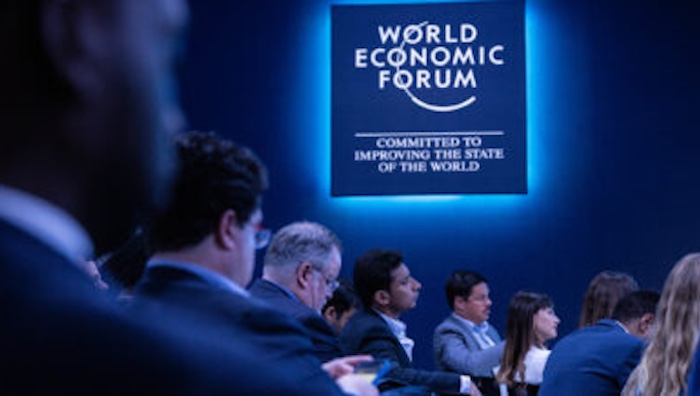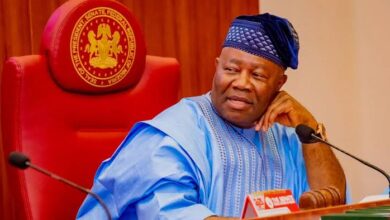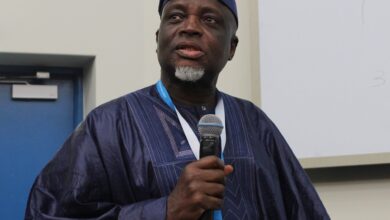Reflection on the Global Risks Report 2024: Misinformation as a Leading Global Threat

BY: Mustapha Lawal
The Global Risks Report 2024, released by the World Economic Forum (WEF), brought forth a sobering reflection on the world’s challenges. Among the prominent risks identified, misinformation ranks as a significant concern, highlighting how false information can sow distrust, destabilise societies, and exacerbate crises.
This ranking is not just a theoretical reflection but is mirrored by real-world incidents, particularly across Africa and other parts of the globe, demonstrating the tangible impact of misinformation. Since the release of the report, numerous events have underscored the devastating consequences of misinformation in shaping global and regional landscapes.
Misinformation and Infodemic in Africa
Africa, like other regions, continues to grapple with the rampant spread of misinformation, particularly in matters of public health and governance. The Infodemic Trends Report by the World Health Organization (WHO), which analysed January 2024 data, illustrates the rise of harmful narratives circulating online. The report indicates a troubling increase in false health information, specifically around vaccination campaigns and public health interventions.
One significant example occurred during efforts to roll out vaccines in Africa. Misinformation regarding the efficacy of vaccines, particularly COVID-19 and Mpox vaccines, led to widespread vaccine hesitancy. WHO’s Infodemic Trends Report noted that false narratives around vaccine-induced illnesses and exaggerated side effects gained traction, further complicating efforts to control outbreaks. These misinformation campaigns risk undermining critical public health interventions, leading to lower vaccine uptake and prolonged health crises across the continent.
Misinformation surrounding political processes is another area of concern. Election-related falsehoods have consistently proven to destabilise democratic processes, with recent examples in countries like Nigeria and Kenya highlighting how political actors exploit misinformation to manipulate public perception and voter behavior.
Misinformation’s Role in Violent Incidents: Global and Regional Examples
Beyond health misinformation, the Global Risks Report 2024 also emphasises the threat of misinformation in stirring political and social unrest. In the United Kingdom, for example, a tragic event—the Southport stabbing in July 2024—demonstrated how misinformation can fuel violence.
False claims circulating on social media suggested that the attacker was a Muslim immigrant, leading to anti-immigrant riots in various parts of the UK. According to an AP News article, these false narratives spread rapidly, triggering violent protests and heightening racial tensions. The case illustrates the destructive capacity of misinformation to incite hate and violence within communities.
In Africa, misinformation around governance, electoral processes, and national security has created significant challenges. During the Nigerian elections, false claims about candidates, voter suppression, and rigged electoral systems spread widely on social media, contributing to confusion and distrust in the electoral process.
As the Global Risks Report 2024 noted, the consequences of misinformation in political settings can lead to a loss of public trust in institutions, erosion of democratic values, and, ultimately, civil unrest.
Elections and Prebunking: Strategies to Combat Misinformation
As several global and regional elections loom in 2024, the challenge of misinformation becomes even more pressing. In a report from The Conversation, experts emphasise the need for “prebunking” as a proactive strategy to counter the spread of misinformation. Prebunking involves providing accurate information to the public before falsehoods take root, thereby building resilience to misleading narratives.
In Africa, this approach is gaining traction as governments, civil society, and fact-checking organisations mobilise to tackle the spread of fake news during election seasons. During the 2023 Nigerian elections, for instance, prebunking efforts by organisations like FactCheckAfrica, CivicHive, and Afrobarometer amongst others proved somewhat effective in preventing misinformation from spiralling out of control. These initiatives focused on media literacy, educating the electorate on identifying credible sources, and fact-checking viral claims in real-time. However, while prebunking strategies show promise, they must be expanded and supported by stronger institutional frameworks and regulatory measures.
The Media’s Role in Addressing Misinformation
Given the scale of the threat, the media must play a central role in countering misinformation. Responsible journalism, fact-checking, and debunking false claims in real time are essential. The media serves as the first line of defence against disinformation campaigns, ensuring the public has access to credible and accurate information.
However, as the Global Risks Report 2024 notes, the role of digital media platforms cannot be ignored. Social media giants like Facebook, X (formerly Twitter), and WhatsApp are often vehicles through which misinformation spreads. These platforms must improve content moderation, fact-checking partnerships, and algorithms to curb the spread of false narratives.
Conclusion: Moving Forward in Combating Misinformation
The Global Risks Report 2024 has successfully highlighted misinformation as a top global risk, and events in 2024 have already underscored the accuracy of this assessment. Misinformation has real-world consequences—from health crises in Africa to violent incidents in the UK. The fight against this growing menace requires coordinated efforts from governments, civil society, the media, and individuals.
Strategies such as prebunking, media literacy campaigns, and stronger digital platform regulations will be crucial moving forward. For Africa and the global community at large, taking decisive action now could mitigate the damaging impact of misinformation in future crises and safeguard public trust in democratic institutions, health interventions, and the broader societal fabric.




